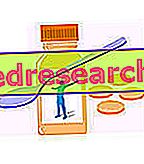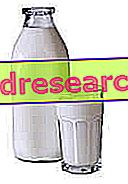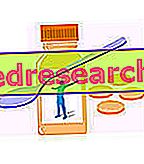Related articles: Autism
Definition
Autism is a neuropsychic pathology characterized by communication problems, loss of contact with external reality and difficulty in relating to other people.
This condition is part of pervasive developmental disorders, which consist of a set of complex problems due to altered brain and mental function.
Currently, the cause of autism has not been identified with certainty, but various constitutional and acquired factors seem to contribute to determining the disorder. In about 10-15% of cases it is possible to identify a genetic component; Autism is found, for example, in the context of the fragile X chromosome syndrome, tuberous sclerosis and Rett syndrome.
Most of the alterations found so far interfere with the correct construction of the connections between brain cells (in particular in the architecture of some areas of the cortex), from which an organic damage would result in the development phases of the nervous system.
Various other factors can contribute to causing autism, including the advanced age of parents at conception, diseases contracted by the mother during pregnancy (eg rubella), prematurity and lower body weight at birth.
Other potential causes are the lack of certain vitamins or exposure to drugs and environmental toxicants during fetal development.
Autism spectrum disorders can frequently occur associated with other neurodevelopmental disorders, such as ADHD (attention deficit hyperactivity disorder), epilepsy and Tourette syndrome. Autism affects males more often (3 to 4 times more than females).
Most common symptoms and signs *
- Aggression
- alexithymia
- anhedonia
- Apraxia
- Catatonia
- Impulsive behavior
- Learning difficulties
- Difficulty concentrating
- Tardive dyskinesia
- Mood disorders
- ecolalia
- Social phobia
- Insomnia
- Hyperesthesia
- Hypoaesthesia
- hypomimia
- Social isolation
- Nervousness
- Loss of coordination of movements
- Mental delay
- Tic
Further indications
Autism occurs during childhood, usually within the first 3 years of life, and involves problems that can last for life. The severity of the symptoms and the pictures presenting the disorder may vary from subject to subject.
Those with autism generally have difficulties in communicating (verbal and non-verbal), social interactions (both with parents and peers) and adapting to the environment.
Autistic children tend to isolate themselves and play alone, close themselves in an inner world and have restricted interests. Regarding language difficulties, autistic subjects can formulate sentences in a strange way and use words repetitively or out of context.
Even the use of different non-verbal behaviors - such as the direct gaze, facial expression, body postures and gestures that regulate social interaction - can be compromised: for example, the child does not react in any way to the mother's smile, evades eye contact and presents an apparent difficulty in emotional contact.
People with autism have a strong resistance to change in their daily routine and any changes can trigger reactions of anger and aggression. Moreover, they can engage for a long time in repetitive, stereotyped or obsessive behaviors and movements (for example, the child rocks back and forth, uses toys unconventionally etc.).
Individuals with autism may have intellectual disability (more or less serious) and learning disabilities. In some cases, they may also be associated with sensory abnormalities (hypo- or hyperreactivity to auditory, visual or tactile stimuli) and alterations in motor coordination.
The diagnosis of autism is made on the basis of the clinical observation of the subject, according to the criteria indicated in the two main reference manuals, DSM (Diagnostic statistical manual of mental disorders) and ICD (International Classification of Diseases); a multidisciplinary group of specialists takes part in the diagnosis, which must include child neuropsychiatrists, pediatricians, family doctors, educators, pedagogues, speech therapists and psychomotor therapists.
There are no definitive cures for autism, but behavioral therapies are available that can help improve language, adaptive behaviors and intellectual abilities, especially if they are established early.
Pharmacological treatment may be indicated by the doctor in the presence of maladaptive behavioral symptoms, such as aggressiveness and hyperactivity; this may include antipsychotic (risperidone) or stimulant (methylphenidate) drugs.



